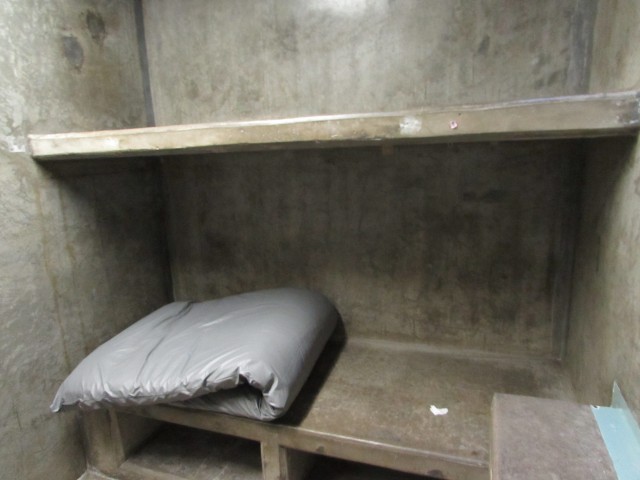In papers filed Friday in the U.S. Eastern District Court, CDCR agreed to limit the amount of pepper spray that custody officers can use and to ban completely the practice in certain types of housing, unless the prison’s warden authorizes it.
[Related: How Does Pepper Spray Cause Harm?]
CDCR also proposed changes that would allow mental health clinicians to block the use of force if they believed it would harm their inmate patients. Correctional officers could no longer override such objections. Instead, senior managers would resolve any disputes.
Michael Bien, an attorney who represents mentally ill prisoners, called the proposed changes “meaningful reforms that go a long way to addressing some of the critical issues we raised during the trial last fall.”
Bien is the lead attorney in a 1990 case -- yet to be resolved -- to improve psychiatric care in prisons.
Gov. Jerry Brown tried to get the case dismissed last year, saying that the state had met its constitutional obligation to provide prisoners with mental health care.
The move back-fired, however, when attorneys for inmates presented fresh evidence of problems, prompting the judge to order new improvements.
Bien said that one of the most significant changes CDCR agreed to would reduce the number of strip searches of mentally ill inmates in segregated housing units.
Corrections officials also agreed to transfer some inmates out within 72 hours, if they were placed in segregated housing only because there was no other housing available.
California prisons isolate prisoners who violate rules or commit new crimes in prison. But they’ve also placed mentally ill inmates in those same segregation units when they couldn’t find space for them in a psychiatric treatment unit.
Inmates in segregation spend more time each day inside their cells than inmates in the general population and must submit to strip searches each time they leave and return to those cells.
Prison officials testified last year that mentally ill inmates suffered no harm from those conditions because the department still met their needs for mental health care.
Judge Karlton rejected that claim. In his ruling he asserted segregated housing “can and does cause serious psychological harm, including decompensation, exacerbation of mental illness, inducement of psychosis, and increased risk of suicide.”
Karlton wants prisons to develop a more rigorous process for deciding whether inmates with mental illness who violate the rules, or commit new crimes should be segregated.
Prisons officials are still negotiating those changes with the federal court’s special master. The parties must reach agreement and file those plans by August 15.
